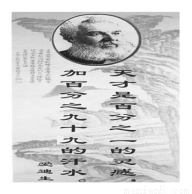题目内容
假设你即将参加你校主题为“Preparing myself for college life”的英语演讲比赛。请根据提示写一则简短的英语演讲稿。构思一下你的大学生活和你打算怎么做来适应大学生活。内容要点应包括:
1.确立新的学习目标;
2.学会独立生活;
3.参加各种活动;
4.处理好与同学和老师的关系
注意:1. 词数:100字左右:
2. 层次清晰,连贯流畅;表达灵活,但不要逐字逐句翻译。
Preparing myself for college life
Hello, everyone! My college life is right around the corner and I’m getting ready for it. ______________________
____________________________________________________________________________________________
____________________________________________________________________________________________
____________________________________________________________________________________________
____________________________________________________________________________________________
____________________________________________________________________________________________
____________________________________________________________________________________________
__________________________________________________________________
That’s all. Thank you!
| A. | obvious | B. | doubtless | C. | bound | D. | certainly |
| A. | get along | B. | get along with | C. | be got along | D. | be got on with |


